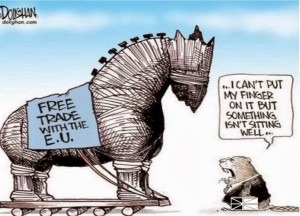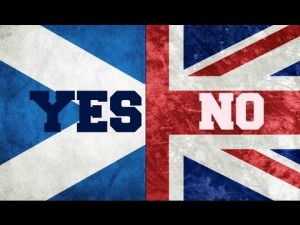The cyber-operation to infiltrate Iran’s nuclear plants to halt its progress by U.S intelligence presents us with a grim truth for the future. It can and it will happen again. The mere fact that the U.S had technical expertise to execute such a mission is beyond belief. Nonetheless it’s a scary look into the future of cyber warfare. Stuxnet is just the beginning.
One reason why we all should be worried about the developments of cyber warfare is because of the vast availability of sophisticated technology and high-speed Internet. Almost everyone has a smartphone and a laptop nowadays. Worldwide connectivity has been made possible. But does everyone use the Internet for good? No. There are millions of computer hackers out there can wreak havoc on cyberspace. They can damage reputation, destroy files and create damaging lies. And all it takes is for them to get on their smartphone or laptop. It is literally as simple as that. And, hacking is a knowledge that can be learned on the Internet itself. Operation Stuxnet is an example of how Iran’s nuclear power plant systems were hacked. It hindered the progress of nuclear development. Hackers, or people in general can cause a lot of harm on the Internet and cyberspace. Moreover, they can cover their tracks by hiding their identity or make fake ones. In the infinite realm of cyberspace, anything is possible. I believe that cyberspace is a perfect place is manifest malicious intent. When they are military applications of cyberspace, it makes it a lot more dangerous. Damage can be done at life-threatening levels, and might be the cause of wars.
Furthermore, I see cyberspace as a pool of resources for corrupted and ill-minded individuals to recruit other people. Often times, people behind the laptop screen are young and innocent, and hence are more susceptible to bad influences. Pornographic sites are nothing new. They poison the mind of the youths with explicit nudity and unprotected sex. And how about religious extremism? Cyberspace is the best place to recruit people, from all over the world, regardless of color, creed or circumstance. Religious extremists prey on the feeble minds that they can sway. It’s a new form of terrorism. And, I don’t think the modern world is ready for this. Terrorism is gaining new ground and exploring new options to further advance their ideology. This is where cyberspace can be deadly.
In conclusion, cyberspace needs to be highly regulated. The future of global peace depends on the safety of cyberspace. Cyber security is the only way to stop the perils of cyberspace.

